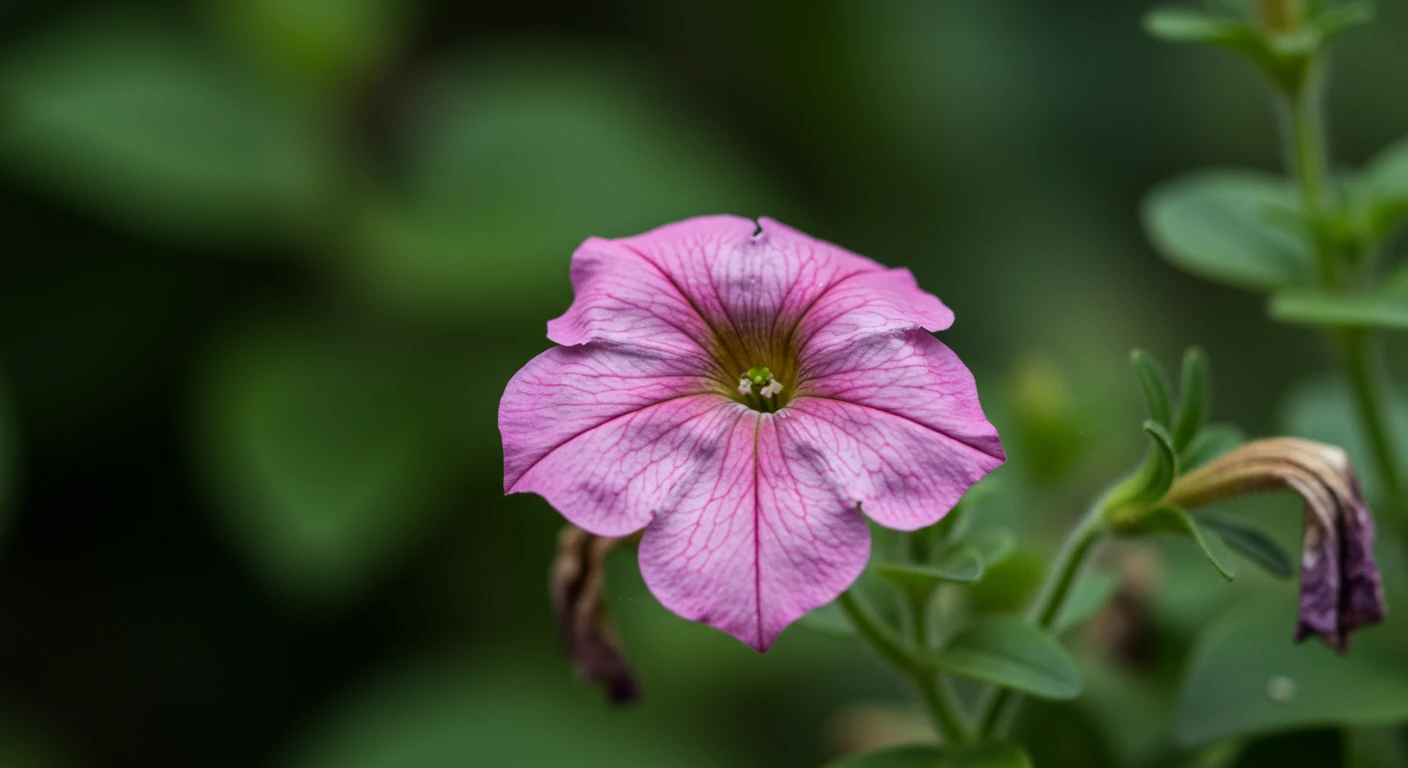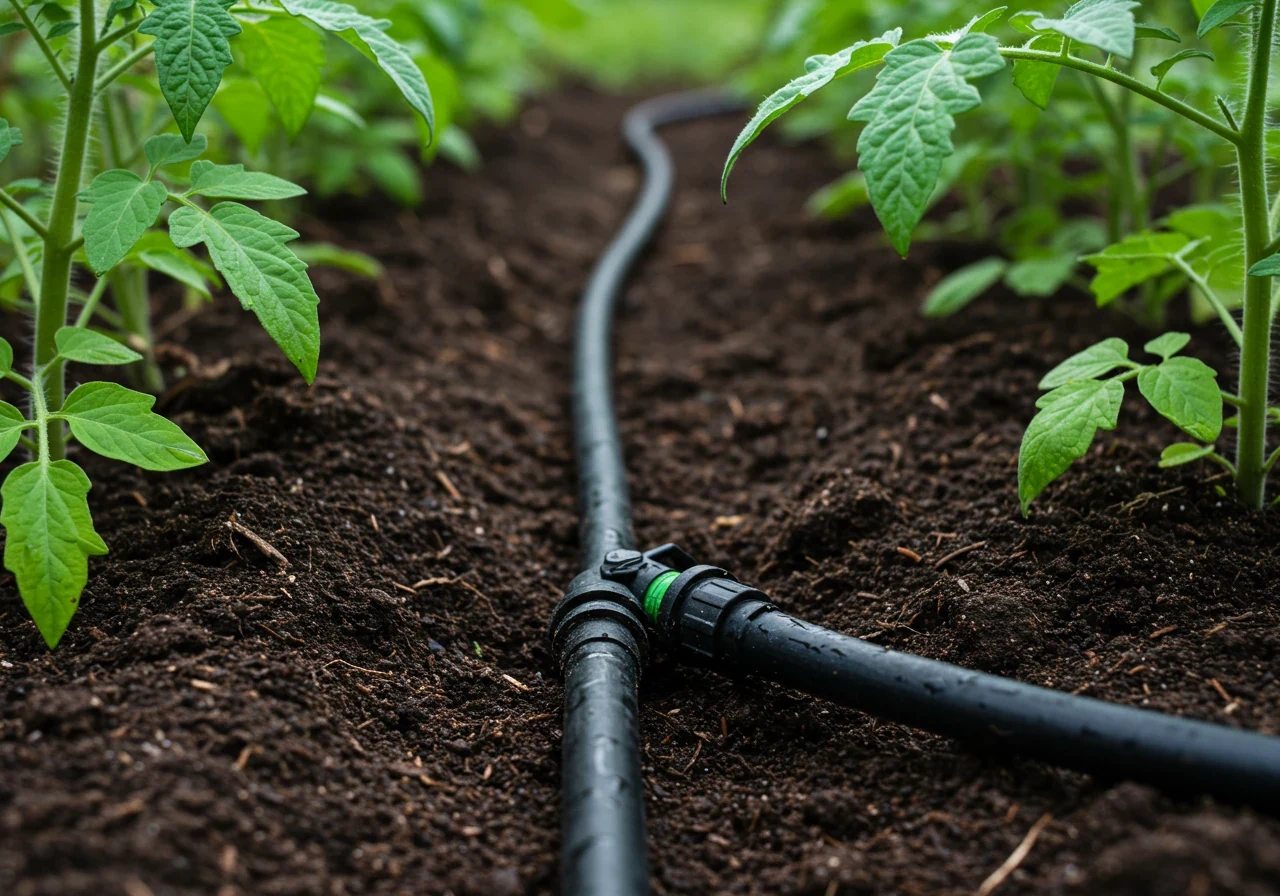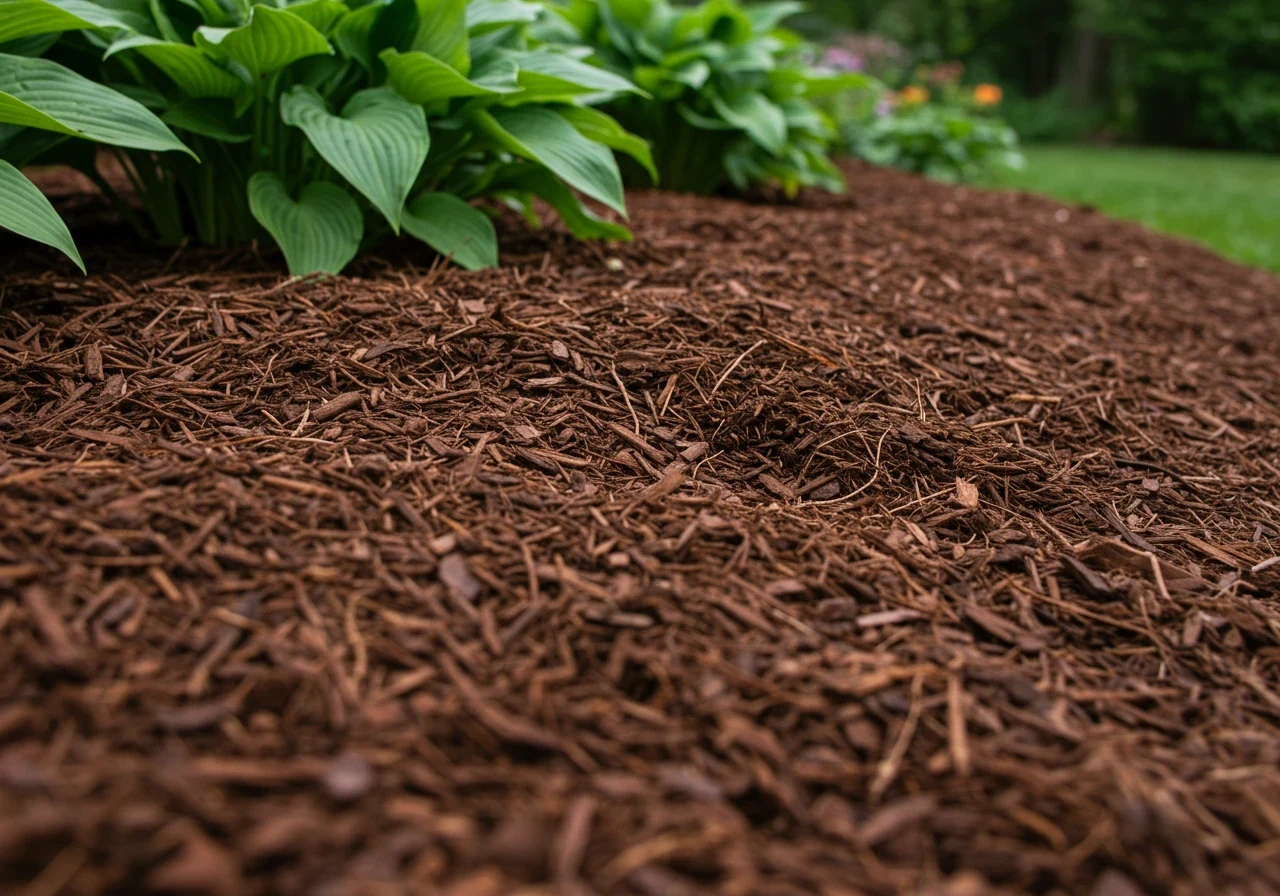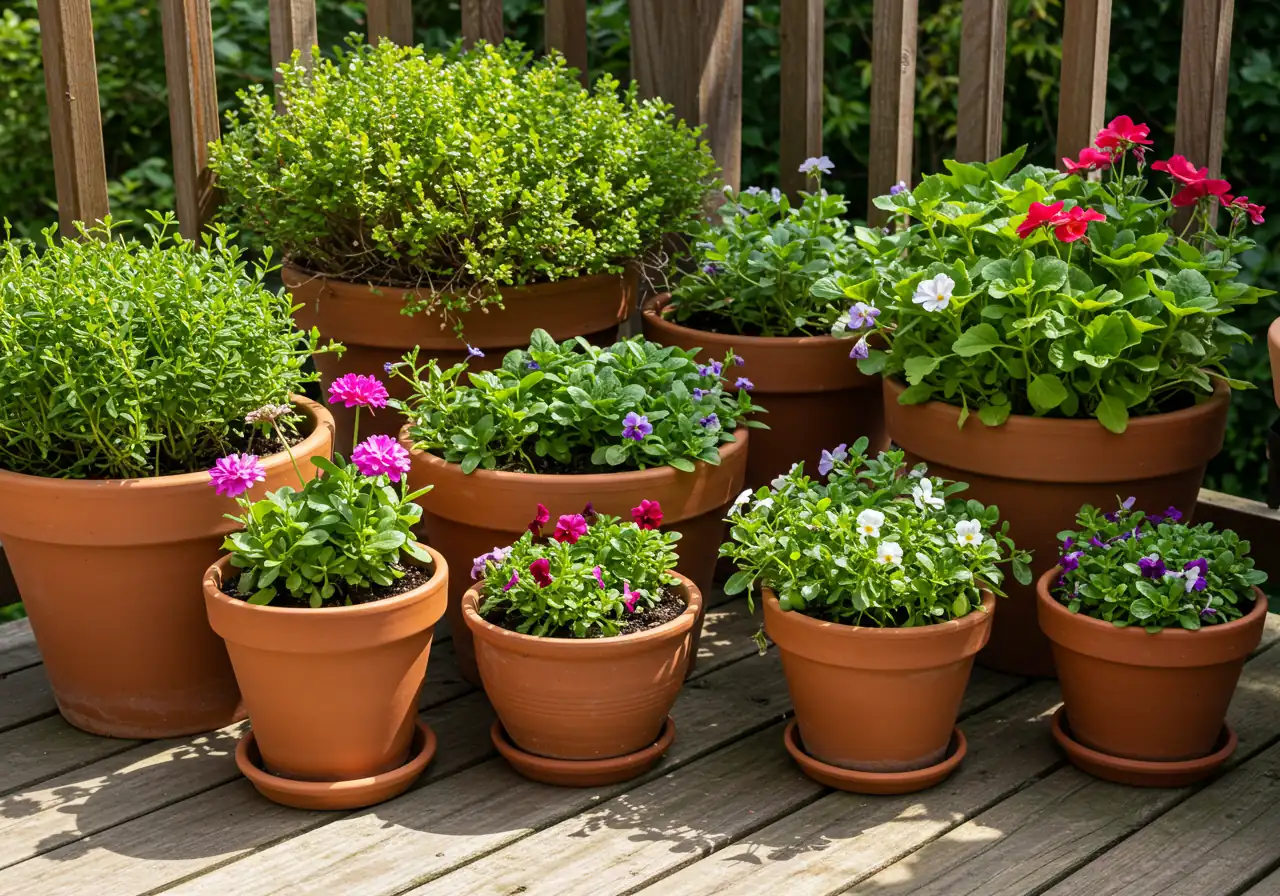Beat Summer Stress: Vernon Pro Plant Health Care Plan
Quick Summary:
- Ottawa summers bring heat, water issues, pests, and diseases that stress plants.
- A Plant Health Care (PHC) plan offers proactive, customized care beyond basic mowing.
- The Vernon Pro PHC Plan includes soil testing, targeted fertilization, and Integrated Pest Management (IPM).
- Simple homeowner tips like deep watering, mowing high, and mulching complement professional care.
- Expert help prevents landscape problems and keeps your yard healthy all summer. Ready for a stress-free landscape? Request your quote today!
Introduction: Ottawa Summers are Great, But Your Plants Might Disagree!
Ah, Ottawa summers! Long sunny days, BBQs sizzling, maybe enjoying the vibe down in Manotick or Greely. We love it! But let’s be honest, while we’re chilling with a cold drink, our gardens might be feeling a bit *overheated*. That beautiful sunshine and sticky humidity we enjoy? It can actually be pretty tough on your lawn, trees, and flower beds. Think droopy leaves, thirsty shrubs, and maybe some unwanted *pests* inviting themselves over for lunch (your prize petunias!). Keeping your landscape vibrant through potential heat waves, surprise fungal diseases, or insect invasions takes some know-how and dedicated *gardening* effort. That’s exactly why we created the Vernon Pro Plant Health Care Plan. It’s your garden’s best friend, giving your plants the expert support and *plant health* care they need to flourish, not just wilt, through our fantastic Ottawa summers. Let us worry about the green stuff so you can focus on the fun!
Decoding Summer Stress: What Your Ottawa Landscape is Up Against


Okay, let’s talk about summer in Ottawa. We love the sunshine, but sometimes our plants look like they’ve just run a marathon in July humidity – and honestly, they kind of have! Summer brings unique challenges for your lawn, *trees*, and *gardens*. Understanding these stresses is the first step to helping your landscape thrive.
First up: The Heat is On!
Ottawa summers can sizzle, and that intense sun combined with muggy air can really stress out plants. Leaves might wilt dramatically during the hottest part of the day, and delicate flowers can get scorched edges. Consistent watering is key, especially during heat waves. Watering early in the morning is best so moisture doesn’t just evaporate before it sinks in. Adding a layer of mulch around your plants acts like a cool blanket for their roots, keeping moisture in and temperatures down. Learn more about effective techniques at the Ottawa Horticultural Society.
Water Woes: Too Much or Not Enough?
Summer weather can be unpredictable. One week we might have drought-like conditions leaving plants gasping, the next we get torrential downpours that can waterlog roots, especially in heavier soils. Neither extreme is great! Finding that watering sweet spot – deep watering less often is usually better than shallow sips every day – is crucial for *plant health*. It’s not just about plants either; you want to think about too, as algae loves warm, potentially stagnant water. Always check current City of Ottawa water restrictions.
Getting Down to Earth: Soil Matters
Our local soil plays a big role. If you’re gardening in areas like Nepean, you might be dealing with heavy clay soil. Clay holds moisture (sometimes *too* well, leading to root rot) and can bake hard as concrete in the sun, making it tough for roots to penetrate. Sandy soils, common in other spots, drain like a sieve, meaning plants need more frequent watering and feeding. Improving your soil structure with compost is almost always a good idea, no matter your starting point. Remember, healthy soil = happy plants! This builds upon the work you might have done putting together your .
Uninvited Guests: Pests, Diseases, and Weeds
Warm weather is party time for pests like aphids and Japanese beetles, and fungal diseases like powdery mildew thrive in humidity. Staying vigilant is important. Regularly inspecting your plants helps catch problems early before they get out of hand. Simple *gardening* practices like proper spacing for air circulation and can make a big difference in preventing issues. It’s also helpful for tracking plant health and pest issues so you know what to watch for year after year. And weeds? Oh, the weeds! They compete aggressively for water, nutrients, and sunlight. Staying on top of them often requires dedicated effort, perhaps even needing help tackling tough garden clean-up jobs.
Keeping your Ottawa landscape healthy through summer takes awareness and consistent care. If it feels overwhelming, remember there are professional landscaping services available to lend a hand!
Beyond Mowing: What Exactly is a Plant Health Care (PHC) Plan?
Okay, so you know we mow lawns. *Obviously*. But have you ever heard the term “Plant Health Care” or PHC and wondered if it’s just fancy talk for weed pulling? Spoiler alert: it’s way more awesome than that! Think of it less like a quick haircut and more like a comprehensive wellness program for your entire landscape.
So, what *is* a PHC plan? It’s a proactive, holistic approach focused on keeping your *trees*, *shrubs*, *flowers*, and yes, even your *lawn*, truly healthy from the roots up. While basic lawn maintenance typically focuses on mowing and maybe some trimming – keeping things looking tidy – PHC dives deeper. It’s about preventing problems *before* they start, rather than just reacting when your favourite rose bush looks sad.
Imagine a simple comparison:
- Basic Lawn Care: Mowing, maybe edging. Like getting a quick trim.
- Plant Health Care (PHC): Monitoring soil health, targeted feeding, pest/disease management, proper pruning, optimizing growing conditions. Like having a personal trainer, nutritionist, and doctor for your plants!
PHC is science-based. We look at the specific needs of your plants in their unique Ottawa environment, whether you’re in Barrhaven or out near Metcalfe. This involves regular monitoring, diagnosing potential issues early (like nutrient deficiencies or insect infestations), and creating tailored solutions. A big part of this often involves proper Soil Preparation, because healthy soil is the foundation for everything. You can find local resources on soil health via organizations like the Rideau Valley Conservation Authority.
The benefits? Healthier, more resilient plants that look fantastic. Fewer panicked calls about mysterious spots or infestations. And often, a more eco-friendly approach using targeted treatments instead of broad applications. Services like a detailed Metcalf garden clean up service or similar programs like our Embrun garden clean up service and our Marionville garden clean up service can be components of a larger PHC strategy. You can even track your plan’s progress and recommendations through our handy Customer Portal. Of course, the specifics of any plan are always detailed in our Terms and Conditions. Ultimately, PHC is about investing in the long-term vitality of your landscape.
The Vernon Pro Plant Health Care Plan: Your Custom Summer Shield
Okay, so we’ve talked about the summer challenges Ottawa throws at our poor plants. Now, let’s get down to the good stuff: the Vernon Pro Plant Health Care Plan! Think of this as your garden’s personalized bodyguard, specifically trained to fend off those summer stresses we discussed earlier. It’s not some generic, spray-everything-and-hope-for-the-best deal. Nope! This plan is all about *customization*. Your landscape in sunny Barrhaven has different needs than a shady, mature property out near Osgoode, right? We get that. Our process starts with understanding *your* specific yard, *your* plants, and *your* goals for your outdoor space.
Step 1: Understanding Your Landscape
It begins with our experts taking a good look at your property. We’ll walk the grounds, chat with you, and assess the current health of your lawn, *trees*, and *shrubs*. For the real deep dive, we often recommend soil testing. Why guess when you can *know*? Understanding your soil’s pH and nutrient levels is fundamental, forming the basis of good Soil Preparation. It’s like knowing the right fuel for your car.
Step 2: Proactive Treatment Plan
Based on the assessment and soil test results, we develop a targeted fertilization schedule using high-quality, often slow-release fertilizers. We also implement Integrated Pest Management (IPM), focusing on prevention and monitoring. Regular visits involve scouting for early signs of pests or diseases. If action *is* needed, we prioritize eco-friendly solutions and targeted treatments, promoting sustainable plant health care.
Step 3: Customized & Complementary Services
Every yard is unique, so the Vernon Pro Plan is flexible. We tailor visit frequency and specific services. Sometimes, achieving optimal plant health involves other efforts, like a spring Metcalf yard cleanup service or even broader Marionville property cleanup service. Our PHC plan also perfectly complements new additions from a Garden Install, ensuring plants thrive from day one.
Who’s behind this awesome plan? It’s our dedicated team of landscaping pros! We’re passionate about plants and serious about keeping your corner of Ottawa looking its absolute best. Check us out on Google or learn more about the friendly faces behind the service on our About Us page. Ultimately, the Vernon Pro Plant Health Care Plan is your peace of mind. It’s knowing your landscape investment is protected by experts who care, letting you simply relax and enjoy those glorious (and sometimes challenging!) Ottawa summer days. Let us build your custom summer shield!
Summer Survival Toolkit: Pro Tips for Ottawa Gardens & Lawns


So, you’ve got a professional plan helping your landscape brave the Ottawa summer – fantastic! But even with expert help, there are simple things *you* can do between visits to give your garden and lawn an extra boost. Think of it as helping your plants do their summer homework! These pro tips will keep things looking lush and happy, complementing the great work already being done.
Water Wisely, Not Weakly:
Forget those quick, shallow sprinkles! Your plants need deep drinks. Aim to water early in the morning (before 10 AM is ideal) so less evaporates and leaves can dry off, reducing disease risk. How often? Let the soil tell you! Stick your finger about an inch or two down. If it feels dry, it’s time to water. If it’s damp, hold off. One or two deep waterings per week during dry spells is usually better than a little bit every day. Container plants, however, dry out much faster and might need daily checks. You can select appropriate watering tools during your material selection phase for new installs.
Mowing High is the Way to Go:
Give your lawn mower blades a rest and raise ’em up! Keeping your grass taller (around 3 inches) helps shade the soil, keeping roots cooler and conserving moisture. It also helps crowd out weeds. Always use sharp blades for a clean cut (dull blades tear grass, inviting disease). If the lawn looks stressed from heat or drought, skip mowing until it recovers. Following these simple pointers are part of good lawn care basics.
Mulch is Your Garden’s Best Friend:
A 2-3 inch layer of organic mulch (like shredded bark) around your trees, shrubs, and in garden beds is like magic. It helps retain soil moisture, keeps roots cooler, suppresses weeds, and looks great. Just be sure to keep mulch a couple of inches away from the base of stems and tree trunks to prevent rot. Professional mulching and edging services can ensure it’s applied correctly.
Be a Plant Detective (Quickly!):
Take a quick stroll through your yard every few days. Look for dramatically wilted leaves (even in the morning), weird spots, holes, or clusters of bugs. Catching problems early makes them *way* easier to deal with. This regular check-in is a key part of effective ongoing garden maintenance. Keeping garden beds tidy and free of excessive debris, which is part of good general property clean up, also eliminates hiding spots for pests.
Adapt to Your Microclimate:
Remember that even within Ottawa, conditions vary. A garden in a sun-baked spot will need more water than one enjoying the cool shade, perhaps like some lovely yards in Richmond or near Metcalf. Pay attention to your specific conditions.
Simple Summer Checklist:
Consider making a simple weekly checklist: Check soil moisture? Quick pest patrol? Lawn needs mowing? It only takes a few minutes and helps keep these simple, effective habits on track. This helps protect the investment you’ve made, especially after major landscape transformations.
And while these daily and weekly tips are great for upkeep, don’t forget the value of larger seasonal efforts. A thorough spring tidy, sometimes needing professional assistance like a dedicated Ottawa property cleanup service, can truly set the stage for easier summer maintenance and healthier plants all season long. Happy gardening!
Common Ottawa Summer Plant Stressors
*Illustrative data based on common seasonal challenges.
Vernon Pro’s Quick Tips: Beat the Heat!

Hey Ottawa neighbours! When the summer sun starts really beating down, our gardens can feel the heat just like we do. Here are some quick tips from the Vernon Pro team to help your landscape chill out and stay vibrant, even when the temperature soars.
Question: My plants look totally wilted by mid-afternoon on hot days! Are they goners?
Answer: Not necessarily! It’s called temporary wilting, and many plants do it to conserve water during the hottest part of the day. Think of it like they’re taking a little siesta. Check them again in the cooler evening or early morning. If they’ve perked back up, they’re likely okay. If they *stay* wilted, they definitely need a good, deep drink at the roots (early morning is best!). Consistent, deep watering helps build resilience against this.
Question: Okay, “water deeply.” What does that actually mean for my flower beds and shrubs?
Answer: Good question! It means watering long enough for the moisture to soak down several inches into the soil, reaching the deeper roots. Instead of a quick 5-minute sprinkle every day, try a longer soak maybe once or twice a week (depending on rain and heat). A soaker hose or drip irrigation is fantastic for this, delivering water slowly right where it’s needed. For lawns, aim for about an inch of water per week, measured with a simple tuna can left on the grass while sprinkling.
Question: I forgot to mulch! Is it too late, and what kind should I use?
Answer: It’s never too late for mulch! Adding a 2-3 inch layer of organic mulch (like shredded bark, wood chips, or compost) around your *trees*, *shrubs*, and in *garden beds* is one of the *best* things you can do to beat the heat. It insulates the soil, keeps roots cooler, holds moisture in, and suppresses weeds. Just make sure to keep it a few inches away from the base of plant stems and tree trunks to avoid rot. If getting mulch spread feels like a big job, remember that services like a professional Ottawa yard cleanup service often include mulching.
Question: Should I be fertilizing my plants when it’s super hot?
Answer: Generally, it’s best to *avoid* heavy fertilizing during extreme heat waves. Pushing new growth when the plant is already stressed from heat can do more harm than good. Stick to your regular feeding schedule if you have one (like through a Plant Health Care plan), but maybe hold off on extra boosts until the heat breaks. Healthy soil established *before* the heat hits is your best bet.
Question: My potted plants on the patio seem to suffer the most. Any special tips for them?
Answer: Absolutely! Containers dry out *much* faster than garden beds, especially terracotta pots. Check their soil moisture daily (sometimes even twice daily in scorching heat). Water thoroughly until water runs out the bottom drainage holes. Grouping pots together can create a slightly more humid microclimate. You might also need to move them to a spot that gets morning sun but afternoon shade during the hottest spells. You can see examples of healthy, well-cared-for container plantings in our project gallery.
Question: My lawn looks brown and crunchy. Should I water it constantly?
Answer: Hold on there! Many cool-season grasses common in Ottawa naturally go dormant (turn brown) during extended heat and drought to survive. It looks rough, but it often recovers when cooler temps and rain return. Watering constantly can sometimes encourage diseases. Deep, infrequent watering (that 1 inch per week rule) is better to keep the roots alive without forcing growth. If it’s patchy or you’re seeing weeds take over, it might need more specific care or overseeding later. If dealing with large areas of stressed lawn or weeds feels overwhelming, you can always book an estimate for professional lawn care solutions. We value your input, feel free to leave estimate feedback!
Question: The heat seems to have finished off some of my annual flowers. What should I do?
Answer: It happens! Intense heat can really stress annuals. Once they look truly crispy and spent, it’s best to pull them out. Leaving dead plant matter can invite pests and diseases. This kind of tidying up is often part of seasonal cleanups, like those handled by our dedicated Marionville yard cleanup service team for folks in that area. Removing spent plants keeps things looking tidy and reduces potential problems.
Question: I’m still worried about my plants or have specific questions about my yard near Kars/Richmond. Who can I ask?
Answer: We’re always here to help! Every landscape is unique, and sometimes you need personalized advice for your specific situation, whether you’re in Kars, Richmond, or anywhere else in the Ottawa area. Don’t hesitate to reach out. You can easily contact us with your questions or concerns, and our team will be happy to assist.
A Typical Vernon Pro PHC Summer Timeline
Early Summer (June)
Initial assessment, soil testing (if needed), first targeted fertilization, early pest/disease scouting (e.g., aphids, leaf spot). Adjust watering advice based on spring rainfall.
Mid-Summer (July)
Monitor for heat stress, Japanese beetle activity, and fungal issues (powdery mildew). Apply follow-up fertilizer if scheduled. Check irrigation effectiveness. Recommend deep watering practices.
Late Summer (August)
Continued pest/disease monitoring (watch for spider mites in dry heat). Assess lawn condition for potential fall aeration/overseeding needs. Adjust care based on plant recovery from heat.
Ongoing Throughout Summer
Regular monitoring visits, proactive treatments as needed, communication with homeowner via Customer Portal, adapting plan based on weather and plant response.
FAQs: Your Ottawa Summer Plant Health Questions Answered
Ah, classic Ottawa clay! It packs down tight. Improving it takes time, but adding organic matter like compost each year helps immensely. Aerating your lawn allows air and water to penetrate better. Also, applying mulch helps retain moisture near the surface and keeps roots cooler – good mulching and edging practices make a noticeable difference in managing clay challenges through the summer heat.
Ugh, Japanese beetles in Barrhaven! Hand-picking into soapy water (early AM is best) is tedious but effective. Skip the traps; they often attract *more* beetles! Insecticidal soap or neem oil can help, used carefully. Healthy plants are less appealing targets, a benefit of consistent care. If beetle damage is severe, removing affected annuals might be needed. We always appreciate homeowners trying eco-friendly methods – a big thank you for caring about beneficial insects too!
Yes, Ottawa often implements summer watering restrictions based on your address – usually odd/even days. Always check the City of Ottawa website for the latest rules. How we handle *your* contact information if you use our services is covered in our privacy policy. Regardless of restrictions, watering deeply early in the morning (before 10 AM) a couple of times a week is far more effective than shallow daily sprinkles.
Great question! For most hedges like cedars, a light trim in late June or early July helps maintain shape without stressing them in peak heat. Avoid hard pruning (cutting back drastically) in mid-summer. Deciduous hedges might tolerate another light shaping then too. If they’ve really gotten out of hand, getting professional advice before tackling major pruning ensures you don’t harm the hedge’s long-term health. Professional garden maintenance often includes expert pruning.
Frustrating! Brown patches in Manotick lawns despite watering could be several things. Common culprits include lawn grubs (check for root damage), fungal diseases (often worse in humidity), or even pet urine spots. Dormancy from heat is possible too. Look closely at the patch edges and roots. If the damage is extensive and recovery seems unlikely, professional sod installation might be the quickest way to restore those areas.
Mid-summer slump is real, especially near Richmond! Give beds a boost by pulling weeds thoroughly (get the roots!). Deadhead spent flowers to encourage more blooms or tidy foliage. Applying a fresh layer of mulch works wonders – it suppresses new weeds, conserves moisture, and instantly makes beds look tidier. A good edge definition helps too. Tackling this is often part of a seasonal Ottawa garden clean up service.
Conclusion: Don’t Sweat Your Landscape This Summer – Let Vernon Pro Help!
Phew, made it! See? Thinking about summer *landscaping* doesn’t have to make you break into a sweat before the humidity even hits. Ottawa summers are glorious, but let’s face it, they *can* be tough on our green spaces. From the unpredictable weather hitting Greely to keeping things lush near Russell, your lawn, *trees*, and *shrubs* face unique stresses. But you don’t have to tackle it alone! The Vernon Pro Plant Health Care Plan is designed specifically for our local conditions, acting as your garden’s proactive wellness coach. We focus on preventative *plant health* strategies – customized feeding, pest scouting, and disease monitoring – so problems are stopped *before* they start. Imagine less worrying about brown patches or wilting flowers, and more time actually enjoying your beautiful outdoor space. Stop letting *gardening* tasks steal your summer fun!
Ready to ditch the landscape stress? Contact Vernon Pro today for a free, no-obligation consultation and quote.
Want to learn more first? Visit our website to explore the details of our Plant Health Care Plan and other services.


